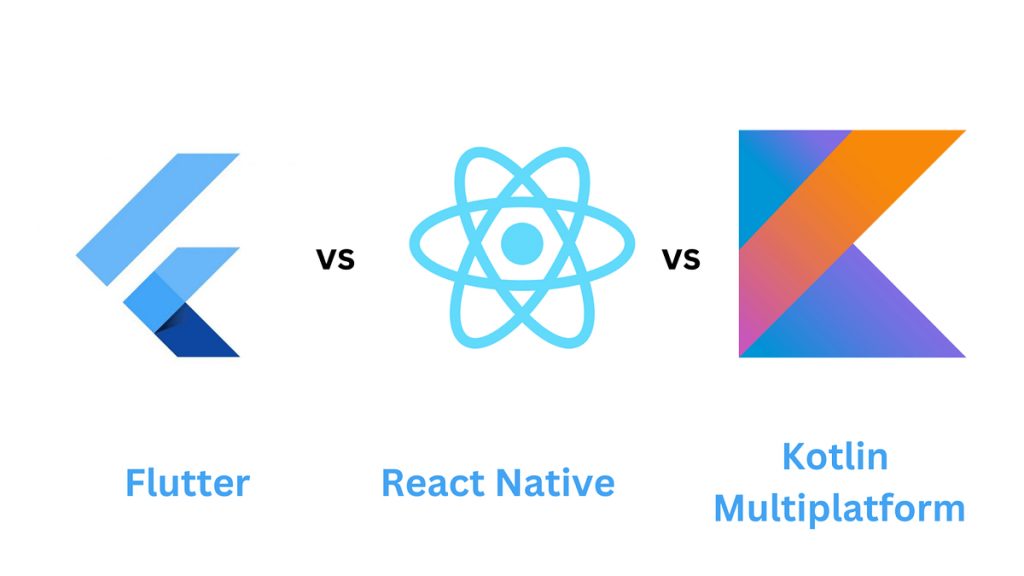
What is Cross-Platform Mobile App Development?
Cross-platform mobile app development lets you build apps that run on iOS and Android with a single codebase. Instead of writing separate code in Swift for iOS and Kotlin for Android, developers can use frameworks like Flutter, React Native, or Kotlin Multiplatform (KMP). They’re faster to develop and maintain than native apps while still offering near-native performance. This reduces cost, speeds up delivery, and ensures a consistent user experience across devices.
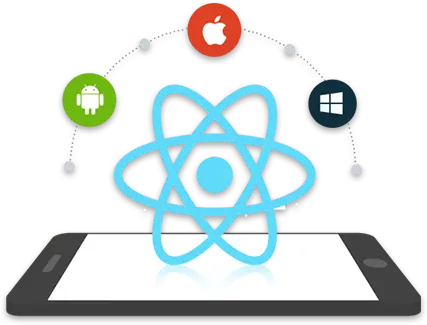
React Native: Best for Web Developers with JS/React Experience
If you already have a JavaScript or React background, React Native offers the fastest learning curve. It uses familiar syntax, a massive ecosystem of packages, and strong community support. React Native is ideal if you’re already familiar with JavaScript or React. It allows fast development, has a huge plugin ecosystem, and is backed by a strong community.
- React Native allows development teams to leverage their existing JavaScript and React skills, significantly reducing the learning curve.
- It benefits from a huge plugin ecosystem via npm, providing pre-built solutions for a wide range of features.
- This framework enables faster MVP development, making it ideal for quickly validating a product idea.
Considerations:
- Its performance may lag in applications that rely heavily on complex animations or real-time processing.
- Developers may need to create a bridge to native code to implement advanced, platform-specific features.
- Ensuring accessibility for screen readers and contrast modes requires careful attention during development.
Flutter: Best for Expressive UIs and Long-Term Consistency
Flutter, built by Google, is known for its expressive UI and smooth performance. Using Dart and a widget-based architecture, it ensures consistent designs across devices. The result? Highly consistent UIs across iOS and Android, with fewer surprises from platform quirks. It is recommended to choose Flutter for apps where user experience is the differentiator, from e-commerce platforms to media-rich mobile apps.
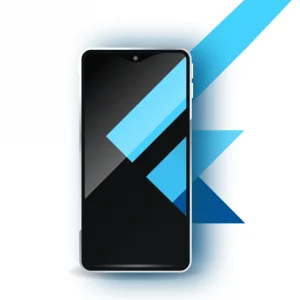
Flutter provides rich UI control and supports smooth, high-performance animations.
It uses a single rendering engine, which guarantees a perfectly consistent look and feel across all platforms.
The framework delivers strong performance, making it suitable even for graphically demanding applications.
It is backed by Google and supported by a rapidly growing and robust ecosystem.
Considerations:
Using Flutter requires learning the Dart programming language, though it is relatively easy for developers with a background in Java or JavaScript.
Apps built with Flutter tend to have a larger initial download size compared to purely native applications.
When it comes to developing apps, focusing on user experience can really set you apart, especially for things like e-commerce platforms or media-rich mobile apps. That’s why we recommend going with Flutter. We’ve got a wealth of experience in it, and we’ve managed to deliver apps that are not only pixel-perfect but also prioritize performance. Plus, they work flawlessly on all devices! Emphasizing user-centered design makes a big difference in creating apps that truly resonate with users.
Kotlin Multiplatform (KMP): Best for Sharing Business Logic in Native Projects
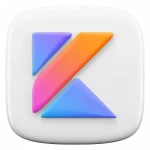
Kotlin Multiplatform (KMP) takes a different approach. Instead of sharing the entire UI code, it focuses on sharing business logic, such as networking, data models, and validation rules, across platforms while allowing you to build fully native UIs for iOS and Android. Developed by JetBrains, KMP is ideal for teams that want code-sharing benefits without compromising on native performance and user experience.
- True Native UI/UX: Build platform-specific UIs with SwiftUI (iOS) and Jetpack Compose (Android), delivering the best possible user experience for each OS.
- Maximizes Code Reuse: Share complex business logic, data layers, and analytics across platforms, reducing bugs and duplication.
- Seamless for Kotlin Devs: A natural choice for existing Android/Kotlin developers; integrates perfectly into Android projects.
- Maturity & Stability: Backed by JetBrains and a mature Kotlin ecosystem, increasingly adopted for production apps.
Considerations:
- UI is Not Shared: Requires separate UI development for each platform, which may not reduce front-end effort as much as other frameworks.
- iOS Knowledge Needed: Teams need proficiency in Swift/SwiftUI to build the iOS interface.
- Evolving State: While core technology is stable, some platform-specific libraries are still evolving.
We recommend KMP for teams with existing Kotlin/Android expertise who are building complex applications and want to share business logic without sacrificing the premium feel of a native UI.
Choosing the Right Framework
So, which one should you pick? It depends on your background and your app’s goals:
- React Native: Perfect if you’re a web developer and want speed + community support.
- Flutter: Best for UI-driven apps where performance and consistency matter.
- Choose Kotlin Multiplatform if: Your team excels in Kotlin and you need to share business logic across platforms while building truly native interfaces.
We don’t believe in one-size-fits-all. Our seven-step refinement process ensures that we evaluate your project’s needs, team skills, and future scalability before recommending a framework. That’s how we deliver apps that are technically sound, accessible, and built to scale.
In Summary
Cross-platform frameworks are powerful tools for single developers and teams alike—but success depends on choosing the one that fits your skills and vision. Each React Native, Flutter, and Kotlin Multiplatform has its strengths, and we know how to align them with your project’s unique requirements.
Got an app idea? Our team will help you choose the right framework and bring your vision to life. Let’s talk

Swalahu is a passionate Flutter Developer with 3 years of experience at Fegno Technologies, specializing in creating seamless, high-performance cross-platform mobile applications. He has contributed to delivering scalable, user-focused apps that enhance digital experiences. Always eager to grow, Swalahu actively explores emerging trends in app development.
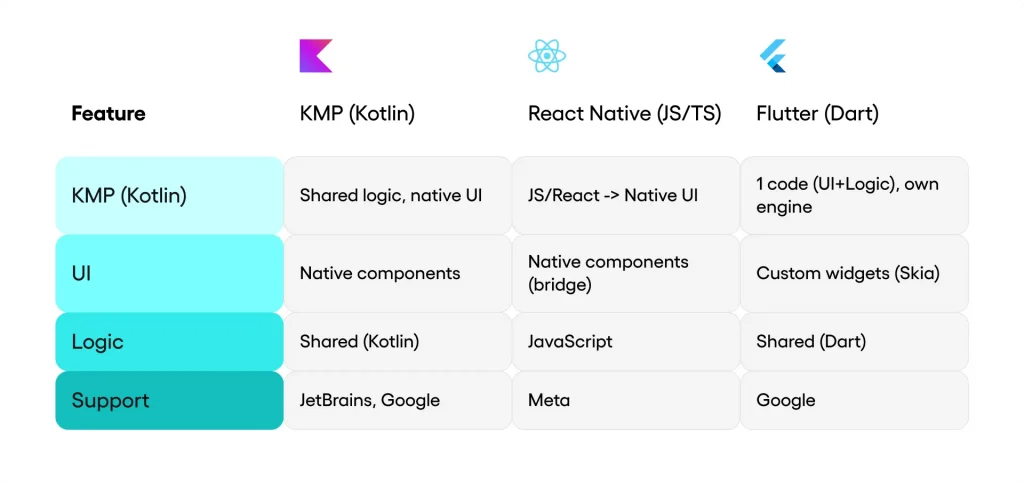

 Schedule An Appointment
Schedule An Appointment